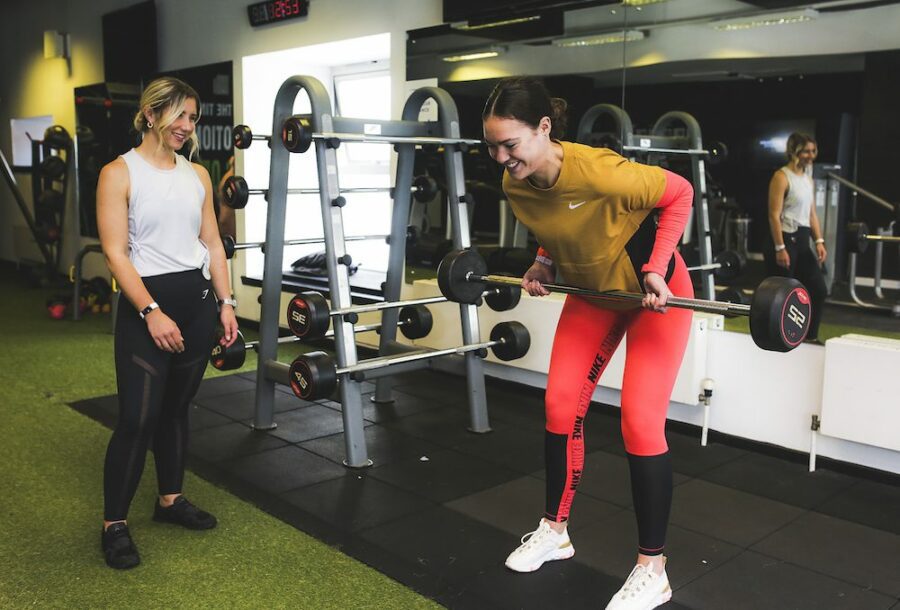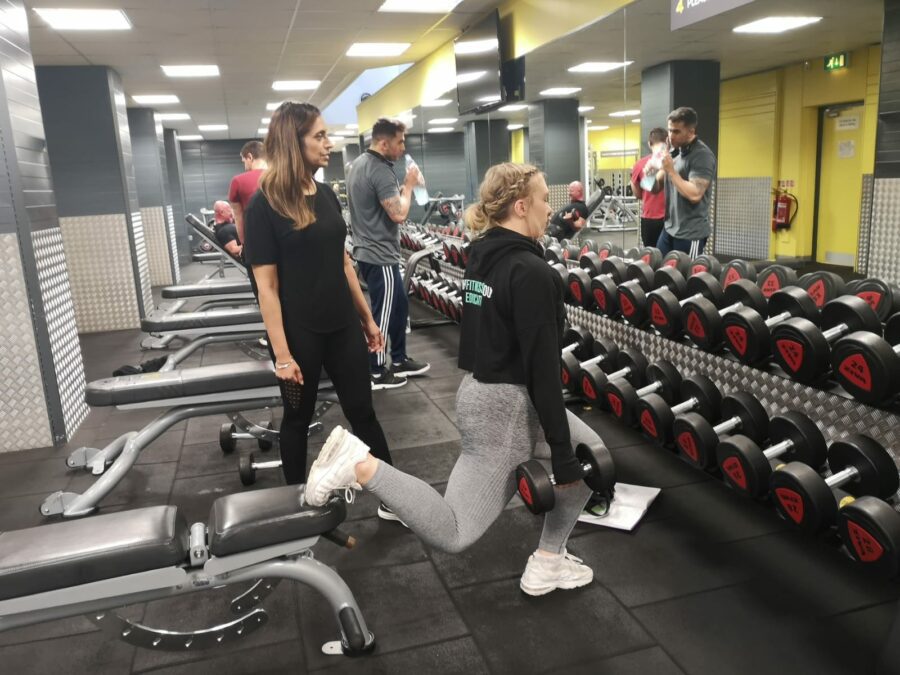
Let’s explore why should you be a Specialist Pre & Post Natal Instructor?
Pre and postnatal women are categorised as a ‘special populations group’. This includes any female who has just become pregnant, is currently going through pregnancy or has given birth within the last 16 weeks (minimum).
To train these clients, you must have the necessary pre and postnatal personal training qualifications as the changes to the body can be complex and severe, and it can have serious consequences if exercise programmes are not safely designed.
Contents
- 1 Should Women Train during the Pre and Postnatal Period?
- 2 Why Do Pre and Postnatal Clients Continue to Exercise?
- 3 Why Must You Be Suitably Qualified to Train Pre and Postnatal Clients?
- 4 What Do You Learn during a Level 3 Pre and Postnatal Diploma?
- 5 Why Should I Get Qualified to Train This Client Group?
- 6 Start Studying Today and Boost Your Earning Potential
Should Women Train during the Pre and Postnatal Period?
It was previously believed that exercise should be avoided during the prenatal period. However, we now know exercise is extremely beneficial for the health of both baby and mother and should be encouraged for many reasons. The prenatal period is not a time for:
- Pushing yourself with training
- Working in high heart rate zones
- Smashing personal bests
- Drastic body composition changes.
But that doesn’t mean exercise isn’t important, and maintaining health and fitness levels should be the aim for your pre and postnatal clients. If you’re hoping to become a successful personal trainer, focusing on this niche can be beneficial to you and your clients.
Why Do Pre and Postnatal Clients Continue to Exercise?
Managing maternal weight gain is one reason to keep exercising. The expecting mother will gain weight during pregnancy. This will be a combination of the foetal weight, increase in fluids within the body (increased blood volume, amniotic fluid, etc.) and some extra fat storage around the hips for protection. However, gaining excess body fat will make the pregnancy and the post-natal recovery challenging.
Mobility will be reduced, risk of gestational diabetes will increase, fitness levels will regress, posture issues such as low-back pain will be more prominent, and ultimately, general comfort during the pregnancy will be difficult if a client isn’t exercising or looking after their nutrition.

In the postnatal period, dealing with a newborn child will become harder if the new mother is suffering from discomfort and a lack of functional strength. This can also increase the difficulty of starting personal training again after the birth. The longer the client has gone without personal training, the tougher it will be to start again, given the stress that the body will have gone through during pregnancy.
Weakened pelvic floor muscles and sometimes prominent separation of the abdominal muscles following childbirth can have a wide range of negative effects, such as stress incontinence, prolapse, weakened core (posture and comfort issues) and loss of functional strength.
These are important reasons why instructors and exercise professionals must know what they are doing for their postnatal clients to rehab the body effectively post-birth. Other factors come as a bonus of exercising through this period, including:
- Increased energy levels when waves of fatigue can be common
- Improved quality of sleep when this can be a struggle during and after pregnancy
- General improvements in mood and well-being following endorphin release in exercise can help to maintain good mental health when there will be a variety of hormonal changes during this time.
One in ten mothers will suffer from postnatal depression, so maintaining a healthy body image and positive feelings of well-being associated with exercise can be extremely beneficial for women at this time.
Why Must You Be Suitably Qualified to Train Pre and Postnatal Clients?
The risks of training during pregnancy become pronounced if you do not understand the changes that happen in the female body and how this affects exercise choice and intensity. It is vital that pre and postnatal clients train with a specialist during this time to maximise safety and effectiveness.
Understanding that they are at higher risk of suffering from increases in blood pressure, different posture abnormalities, increase in the risk of injury through hormonal changes and other factors putting the mother and baby at risk means you can be confident planning exercise programmes to suit them. Any risk of trauma to the baby bump or of falling over must be eliminated.
During the qualification, you will learn how to adapt and regress exercise so that you can eliminate any risk of harm to the mother or baby and can help best prepare your pre and postnatal clients physically for the birth and beyond. Knowing how exercise will need to change as you work through the three trimesters of pregnancy means your client will always be working optimally in the gym.
Before studying to become a specialist pre and post natal instructor you should first hold a minimum of a Level 2 Gym Instructor Qualification and above (like one of our accredited Level 3 Personal Training Qualifications).
What Do You Learn during a Level 3 Pre and Postnatal Diploma?
We cover a wide range of subjects on our Level 3 Pre and Postnatal Diploma. Those subjects cover the following:
- Knowing what exercises to avoid
- Exercise positions that can be harmful
- The correct way to train the core (due to complications with diastasis recti)
- The correct intensities to be aiming for during cardiovascular work
- The right type of flexibility work
- How to combat the increased risk of overheating and dehydration.
These are all vital components of making a programme. Of course, no two pregnancies are identical, so it becomes important that you understand the different changes, when they are likely to take place, and how this can differ from client to client. Having this knowledge means you can adapt your programme to suit each of your unique pre and postnatal clients.
Relating to your clients helps get the most for them. Understanding the changes that take place during this time allows you to be more empathetic, sensitive and, ultimately, give your clients a gold-standard service.
Why Should I Get Qualified to Train This Client Group?
If you are a personal trainer who trains female clients, there’s a possibility that one or more may become pregnant at some point. Losing a client for the nine months of their pregnancy and then at least another three months post-pregnancy can mean being without that client for upwards of a year. This could be a big loss of income if it is one or more of your regular clients.
If your client then chooses to train with another pre and postnatal specialist instructor during that period, they may continue to work with them beyond that, so you have lost a client entirely.
Should you continue to train your client without being suitably qualified, you put them and their child at risk and leave yourself liable for anything that happens during a session. This makes qualification a key ethical and legal requirement.
If you are a pre and postnatal specialist instructor, it will also help you to generate new clients going through this period and want to continue training. It can open you up to a wider range of potential clients who may continue training with you beyond their pregnancy. According to the Office of National Statistics, around 613,000 women give birth every year in the UK (although this does fluctuate year on year), so there will always be a constant demand for the type of trainer who can safely train pre and postnatal clients.
The cost of the qualification is relatively low, but the knowledge you gain from it is very high. You will likely pay off the course fees through one client, making it a very good investment in yourself. From a business point of view, it makes financial sense. You can also study for a Level 3 Pre and Postnatal exercise online or in-person, so it’s an accessible option whatever your schedule or commitments.

According to recent studies, under 10% of PTs are qualified as a Level 3 pre and postnatal specialist instructor, so it may even be a struggle for these clients to find a specialist personal trainer. If there isn’t any currently in your gym, it could be a good market to exploit to generate new clients and increase value for your current clients.
Having this qualification is great for your branding too, which is one of the most useful tools for growing a personal trainer’s business.
Start Studying Today and Boost Your Earning Potential
If you’re thinking of taking on pre and postnatal clients, you must know what you are doing. It is your duty of care as a fitness professional to safely train this client group, protecting your client and yourself.
The last thing anyone wants is to be responsible for any complications during a client’s pregnancy, so taking the time to get the qualification is a really good investment in yourself. It can not only help your business but improve your confidence and trust levels within the industry.
Besides the ethical requirements, it’s a fascinating course that helps you understand what happens to the body during pregnancy. If you’re a woman who has never experienced the changes that occur during pregnancy, or a man, this information can be invaluable.
Find out more about the Level 3 Pre and Postnatal qualification, and book your place on the course today. It could be the key to boosting your client list and generating an unexpected source of income.

